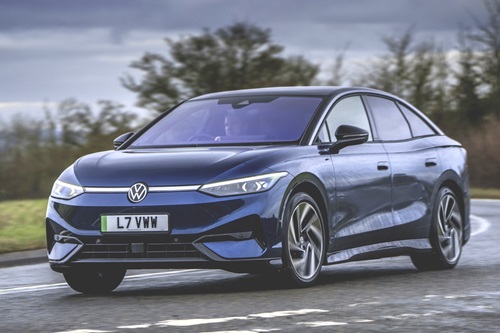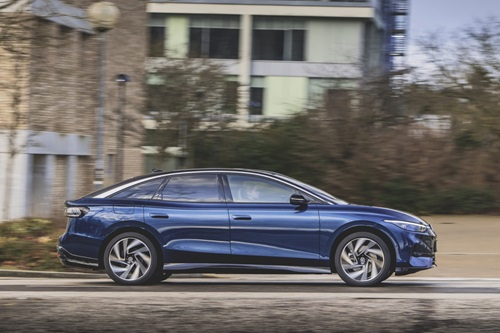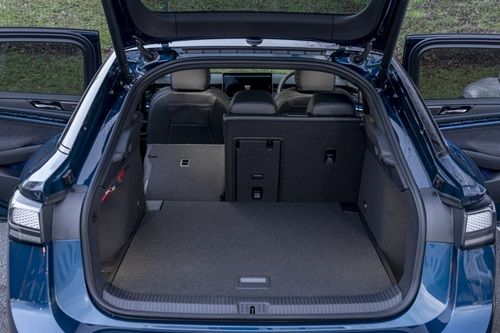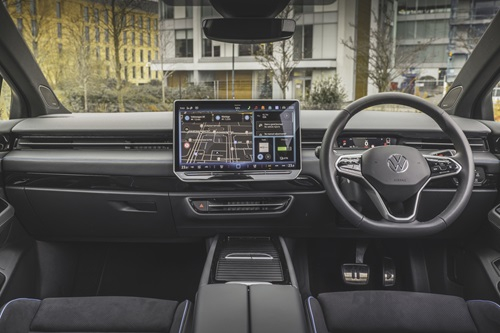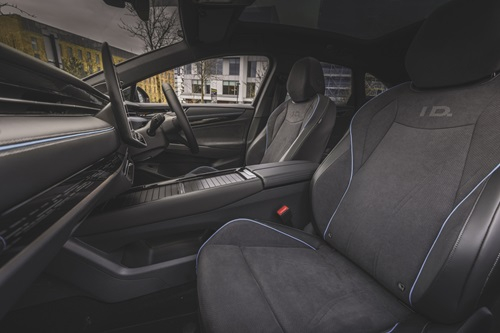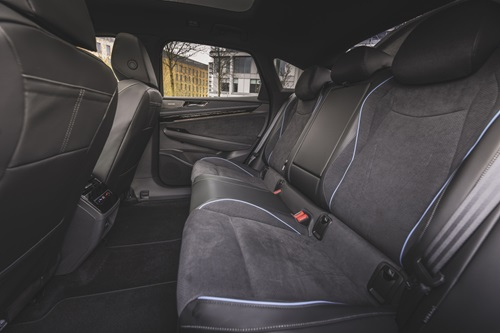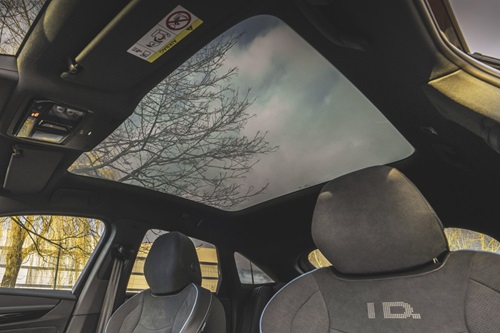Volkswagen has been on a learning curve with electric cars but now it’s heading towards the top of the class.
It has flirted with electric cars for many years and a decade ago gave us their zero emission versions of the e-Golf and e-Up, adapted models of their better known petrol and diesel hatchbacks.
VW engineers knew change was coming down the line and began developing their “intelligent design” identities, a new family of pure electric models which could be the basis for other models and badges in the massive VW Group.
So they created the highly variable MEB Platform which has just a few fixed points but can be produced in a number of wheelbase and track dimensions with a variety of bodystyles and, importantly, behind any badges in the family.
Some will be made for Europe alone, others for China, the Americas and other markets. This really is maximising expertise in a rational and specific way.
Tantalisingly, we saw the ID.3 hatchback first appear in autumn 2019, followed by the ID.4 SUV about a year later before the ID.5 coupe was shown 12 months later. The ID.6 crossover coupe with three-row seating was made exclusively for China.
The mid-sized ID.7 saloon appeared in Europe last year and in February this year the ID.7 estate added to the range.
Along with these conventional cars, the ID.Buzz was the MEB supported minivan which echoed the VW Camper series and that came in 2022.
Now you may wonder why the series started with the ID.3, well this allowed VW to build up profits sooner than with smaller models but next year we are expecting a Polo sized version, the ID.2, and then 12 on from that a successor to the up!, the ID.1.
Volkswagen is creating a huge range of battery electric vehicles and gradually adding technology and features to benefit from the advances being made in materials and power-pack design. It is likely to become the biggest European maker of the next generation of cars.
That should stand them on the high ground for the expected tussle with the newer manufacturers from China as well as emerging models from America and, of course, other European ‘legend’ marques which need a slice of the sales.
The ID.7 is their largest BEV to date and aimed squarely at the executive and luxury market. Not only is it very sleek and sharply styled, but its smooth lines permit it to slip through the air with minimal drag, so helping stretch the charge.
Our £57,180 test car was fitted with over £5,630 of extras. The test car’s price included optional 20-inch Montreal Black finished wheels, heat pump, Harmon Kardon sound system, massage front heated and cooling seats, heated outer rear seats ‘smart glass’ sunroof, adaptive suspension and variable driving modes.
The comfort and convenience features came with a high capacity traction battery, powerful smooth motor and gearbox, but only rear wheel drive.
Our car’s four driving modes of eco, comfort, individual and sport made some changes to the feel of the car, its responses and ride, as well as its performance and range, so it was worth playing around with them to find the ideal setting for a particular journey or road.
All that is done by a touchscreen which also controls navigation, communications, heating and ventilation output together with charging preferences and car settings. Slide controls below the 15-inch screen affect interior temperature so you don’t have to take your eyes off the road to increase or decrease this inside, but you can also use technology to pre-heat the car as you wish.
Our fitted assistance systems included Travel Assist with swarm data, which introduces assisted lane changing at speeds above 55mph on motorways, and automatic parking with memory function over a distance of up to 50 metres.
For the driver there is also a neat head-up display of essential data on the windscreen and changing the modes does produce slightly different visual displays on the driver’s display immediately infront of the column.
The basic display is a reasonable size and very clear, but I did consider the central infotainment screen was distracting to use on the move.
There is a stumpy park, drive or reverse toggle switch on the right of the column which worked well and the familiar lights and wipers stalks controls were all close to hand as well with a few secondary push buttons on the right corner of the fascia and set into the door armrest.
Oddments space was very good throughout the big cabin, with trays, recesses and compartments well placed and the boot remotely opened and closed from knee-height and was a very good size even before being gradually extended.
The big doors opened wide for easy access and egress while the five seats were very generous and the front pair were fitted with cooling and heating functions along with a massage mode. Leg and shoulder room was very good.
All adjustments were easily made and accommodated users of any size, while seats were supporting and headroom was generous beneath a sunroof which was clear or opaque depending on a user’s preferences.
Wipers were large, effective and supported with a good washing system, very good long range and wide headlights and excellent sensors and reversing camera.
Nevertheless, it is a big car a few millimetres under 5 metres and it overhangs some parking spaces so you have to be careful easing into bays unless you have complete faith in the automatic system and sensors.
On the move it produced a little road noise from the big tyres and wheels but its ride is supremely comfortable even on a firmer setting and the roll or pitching was very moderate.
Responses were good to steering and brakes and it generally gripped very well with no real issues which might knock confidence in its ability to cover long distances with ease and near silence. The low slung battery pack has helped roadholding and I doubt the need for an all-wheel drive version if its even being planned.
At motorway speed it was arrow straight, alert to changing traffic ahead, the sides or even behind and we consider in mixed driving conditions the range would be about 320 miles, a little below VW’s stated distance for comparison tests but a very good range nevertheless.
It charges quickly when needed and has remote controls for this once hooked up.
The Volkswagen ID.7 saloon really felt very well made, thoroughly practical and enjoyable as an executive car for the next era. It’s a lesson to rivals.
FAST FACTS
Model: Volkswagen ID.7 Pro Match
Price: £57,180 as tested
Mechanical: 286ps motor, 77kWh lithium-ion battery, single-speed automatic, rear wheel drive
Max Speed: 112 mph
0-62mph: 6.5 secs
Range: 320 miles
Insurance Group: 38E
CO2 emissions: Zero
Bik rating: 2%, VED £Zero FY, £590SRx5-years
Warranty: 3yrs/ 60,000 miles mechanical & 8yrs/100,000 miles battery
Size: L4.97m, W2.15m, H1.54m
Bootspace: 532 to 1586 litres
Kerbweight: 2172kg
For: Strong performance, long range, very comfortable, roomy with big boot, quality finish, highly sophisticated & very clear instruments, head up display
Against: Complex infotainment, some road noise, big to park in some spaces. By Robin Roberts Miles Better News Agency
